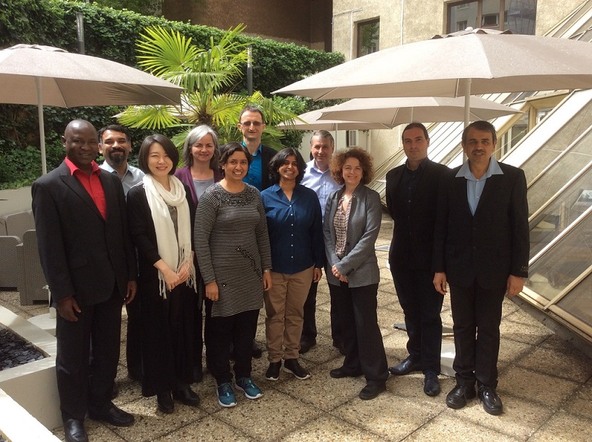TROP ICSU
Projekt
Status
Wie kann ich mitmachen?
We welcome contributions to our collated suite of pedagogical tools that can be used to teach concepts in climate change along with the core curriculum in science and mathematics.
To recommend a relevant tool that you have developed, modified or used, please contact us at tropicsu@iubs.org.
Webseite
Autoren
TROP ICSU (Transdiciplinary Research-Oriented Pedagogy for Improving Climate Studies and Understanding) is a global project funded by the International Council of Science to improve awareness of climate change and the science behind it on high school and undergraduate levels of education. The project develops detailed educational resources availables to teachers, that bring climate-related examples and case studies to the core curriculum, and enhance conceptual understanding of the topics in basic science, mathematics and other disciplines.
The goal is not to introduce Climate Education as a stand-alone topic, but to integrate it with the core curriculum of Science, Mathematics, and Social Sciences.
Climate change is considered to be the most critical factor affecting sustainable and equitable development, increasing conflicts and causing massive extinctions of species. Thus, impact of climate change is inseparable from our day to day life. The TROP ICSU project aims to provide teaching aids for educators and science communication modules to improve understanding of the science of climate change among students and the general public and help them develop necessary skills to mitigate its impact.
To achieve this objective, we are curating a suite of teaching resources that integrate climate studies with curriculum in various disciplines and subjects. These educational resources are locally rooted but globally relevant for their science. These resources are designed to promote interdisciplinary thinking and help future citizens to identify appropriate solutions to reverse climate change. Selected tools will be packaged in such a manner that teachers could use them worldwide to introduce climate change-related topics, while teaching basic concepts of science and mathematics in schools and universities.
To achieve the overall objective, we are collating a suit of Teaching Tools and creating a suit of Lesson Plans. Each Teaching Tool is typically a computer-based tool such as an interactive visualization, model/ simulator, video micro-lecture, or classroom/ laboratory/ field activity that can be used to teach a topic in the curriculum of a particular discipline with the help of a climate-related example. Each Lesson Plan consists of a set of teaching tools and a write-up, packaged in the form of a step-by-step guide. Educators can use these Lesson Plans as supplementary aids or can integrate the them with their existing teaching modules.
The use of these teaching resources will enable educators to teach a topic in a particular discipline with the help of examples, case studies, and exercises related to climate change. These resources can be used globally by educators in the classroom/laboratory or by students for independent learning. Such an integrated approach will help increase climate awareness among students. Our Pedagogical Resources are Locally Rooted, Culturally Appropriate, and Globally Relevant for Climate Change.
These are the project partners:

